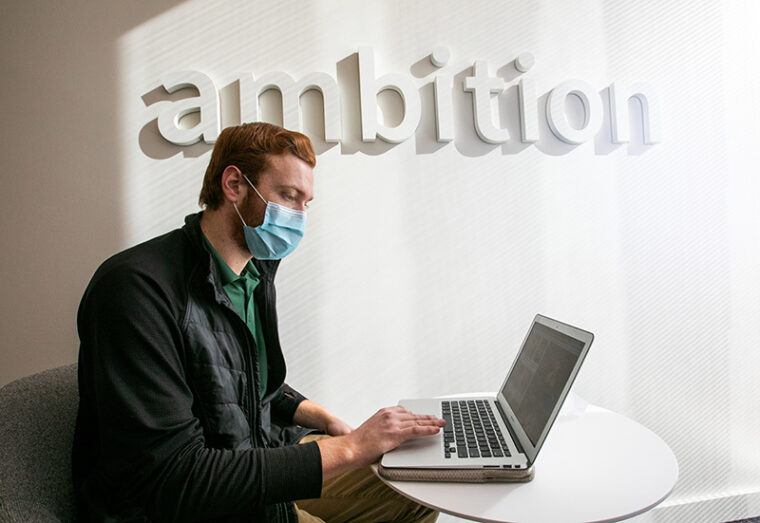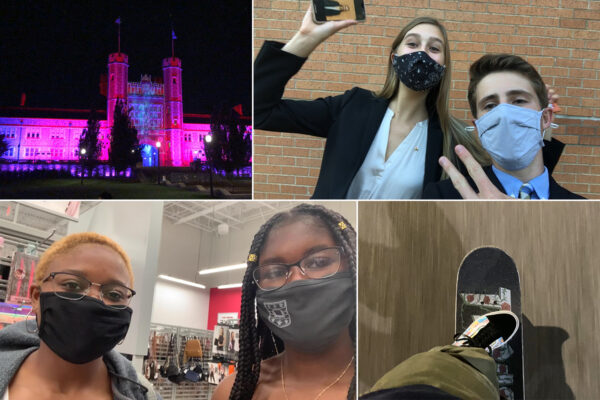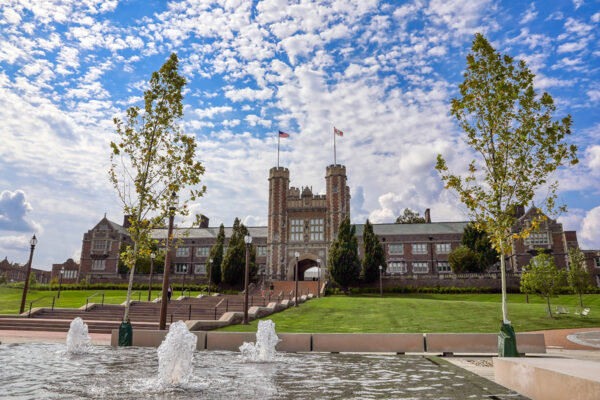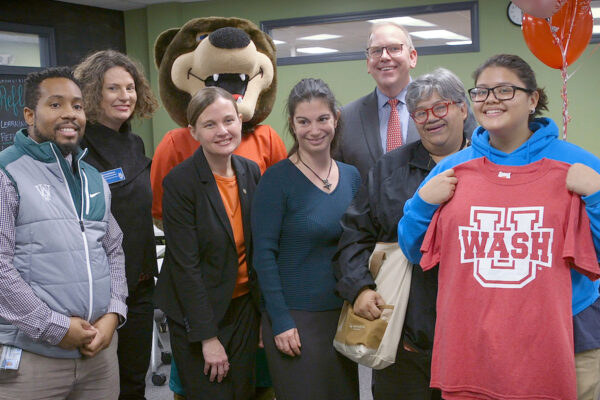The Class of 2025 at Washington University in St. Louis will be talented, driven and diverse — of this Ronné Turner, vice provost for admissions and financial aid, is certain. But the hard work of recruiting and admitting students during this unprecedented admission cycle won’t be easy.
“COVID-19 has radically disrupted every aspect of the college admissions process,” Turner said. “We are finding creative ways to reach students and have changed the application process to support students impacted by COVID-19. But we just can’t know how this will all turn out.”
The Office of Undergraduate Admissions responded to the COVID-19 crisis by altering admission requirements and expanding virtual opportunities to engage with students and faculty. The university went test-optional for the year as it became clear that many students would not have the opportunity to sit for the ACT or SAT. The office also added new information panels with current students; academic panels with deans; and virtual classes with leading faculty.
“If there is a silver lining, it’s that we have been able to reach more students in more ways than we have ever done before,” said Emily Almas, assistant vice provost and director of admissions. “Still, people really want that in-person experience. We know from many of our students that it was their visit to campus that convinced them to come here.”
Here, Turner and Almas discuss how the pandemic has changed the admissions landscape, what changes they have implemented in response and who can help the Office of Admissions yield the Class of 2025. Short answer: Everyone!
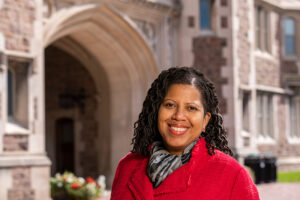
Colleges and universities have started accepting applications for next year. What are we seeing?
Almas: Nationwide, fewer students are applying to college compared to this time last year. FAFSA and Common App completion rates also have declined. That is worrisome. Students who are attending school virtually have less access to college counseling and resources. And admission officers, who typically would be fanning the nation right now, aren′t out there.
Turner: Students are just stressed. Even students with a lot of resources and support are struggling. And students without resources may be stressed out about sick relatives or job loss and not trusting that college is affordable. And beyond COVID, students who are feeling the stress of politics and racial inequities may now be looking at historically Black and Hispanic-serving institutions. And so there is all of this swirl, and we don’t know how we’ll end up. We are in decent shape right now with our application numbers, but we don’t know what will happen as we get closer to January, when applications are due.
WashU really is a school that must be seen to be believed. How can you recreate the experience digitally?
Turner: It is challenging, but we are working hard at this. Nothing is like walking up to Brookings or experiencing the welcoming atmosphere here, but we have creatively engaged technology to give students and families a realistic look at our campus. We have more than 165 students plus many staff and faculty helping us tell the WashU story. For example, we offer a virtual tour that is guided by current students, so we still are able to provide the student perspective. We also have students as part of all our virtual information sessions. Feedback from participants is that our community’s warmth is coming through. Yes, it is very different from an in-person visit, which we all prefer, but our team has done an incredible job. I always like to remind students and families that thousands of students made college decisions pre-COVID without visiting for all types of reasons. So, it can be done.
How have you changed the application process?
Turner: The biggest change is the decision to go test-optional for the year. We also have waived the application fee for any student who is applying for financial aid. We also are inviting students to provide a video about themselves or their interests. This idea was already in place before COVID because we know that not everybody who applies to WashU can come for an interview or are in a location where they can be interviewed by an alum, so this is a way they can tell us more about themselves.
We also are working really hard to communicate with families that we understand there have been huge disruptions. We know every high school is handling the pandemic differently. Some have gone pass/fail. Activities have been limited. And some students have really struggled with distance learning. And so we are trying to be clear with families that our process is about holistic review. We are going to look at each student’s application in the context of their situation.
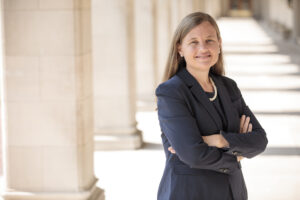
How can you determine who is right for Washington University without standardized test scores and complete transcripts?
Almas: Holistic review at WashU has always meant a careful and thoughtful review of all of the different pieces of a student′s application. That has not changed. Some students will have a test score as part of that application. Others will not. Either is fine. There are many ways we go about understanding a student’s academic achievement. What classes did they choose? How did they do in those classes? Did they align with their academic interests? What do their teachers and counselors say about their performance and potential? We also look at essays, extracurriculars, jobs and what a student’s interests are and what kind of classmate or roommate they will be.
In the end, what are your expectations for the Class of 2025?
Turner: We are going to continue to identify, admit and yield the best and the brightest students across the country. Our goals have not changed — we are working to attract talented students, students from diverse backgrounds, students who identify as students of color, students who are Pell-eligible. We are still committed to the WashU Pledge. We are still committed to trying to get a student from every single state in the United States. And we’re still interested in admitting international students.
Our peers are vying for the same students. How will you convince students to choose WashU?
Turner: We are going to do everything possible to show and tell the WashU story to these students. To do that, we will need to rely on the WashU community in ways we may not have needed before. We hope faculty will engage with admitted students. We hope current students reach out and share their own stories. The entire community will have to come together.
